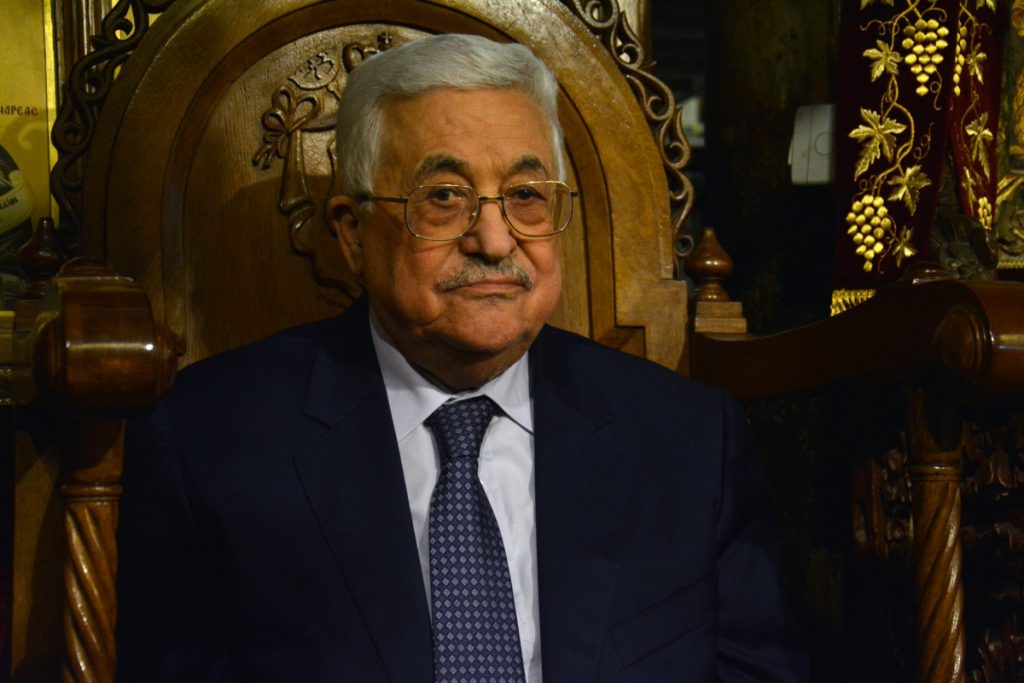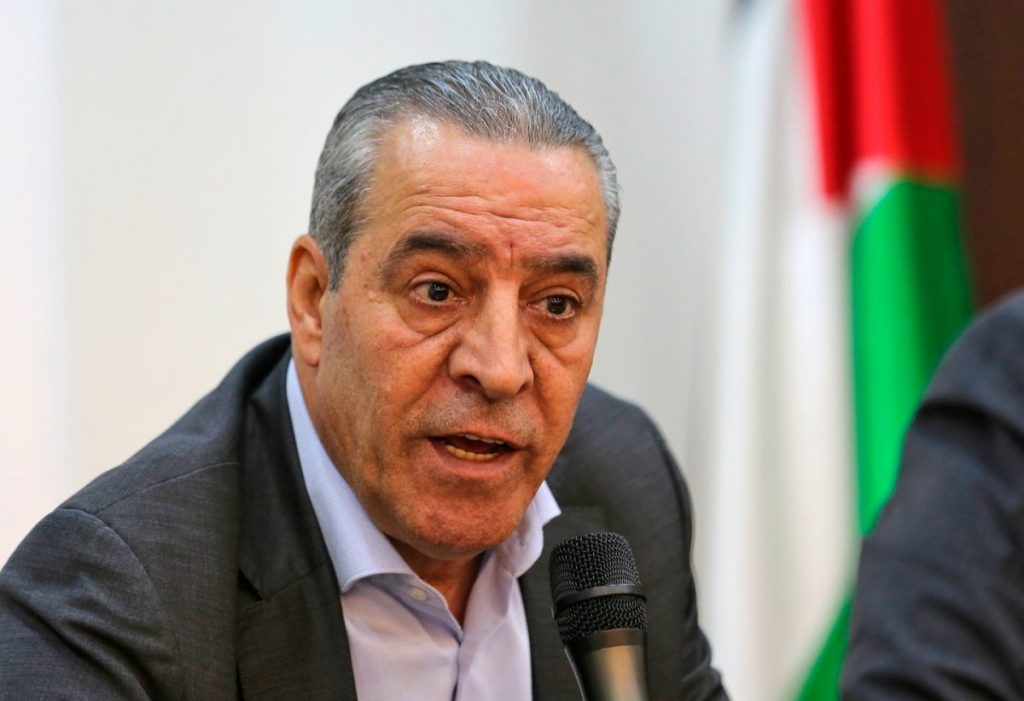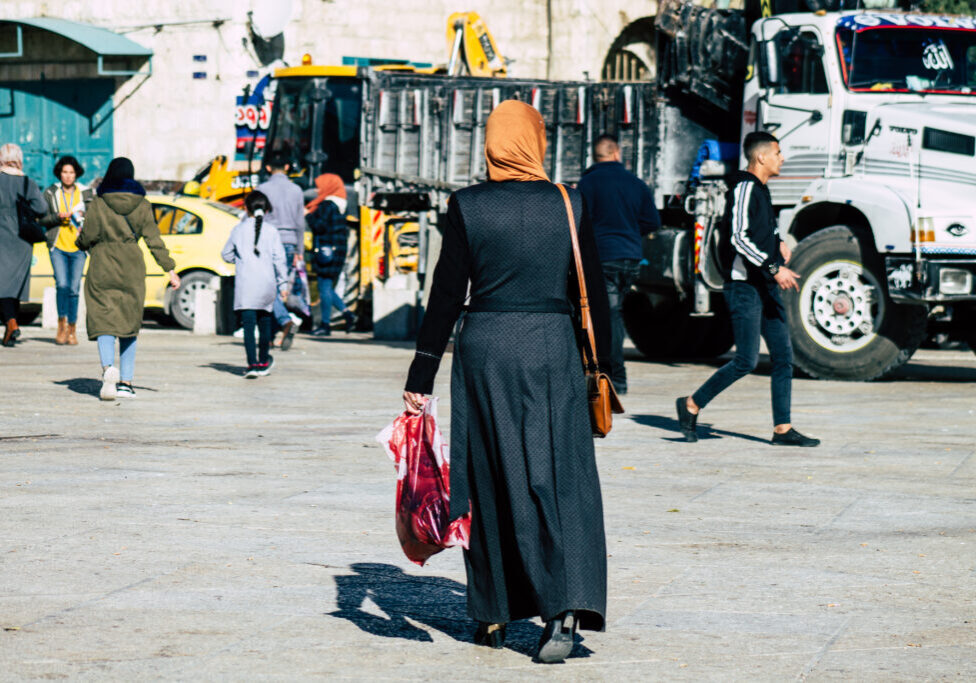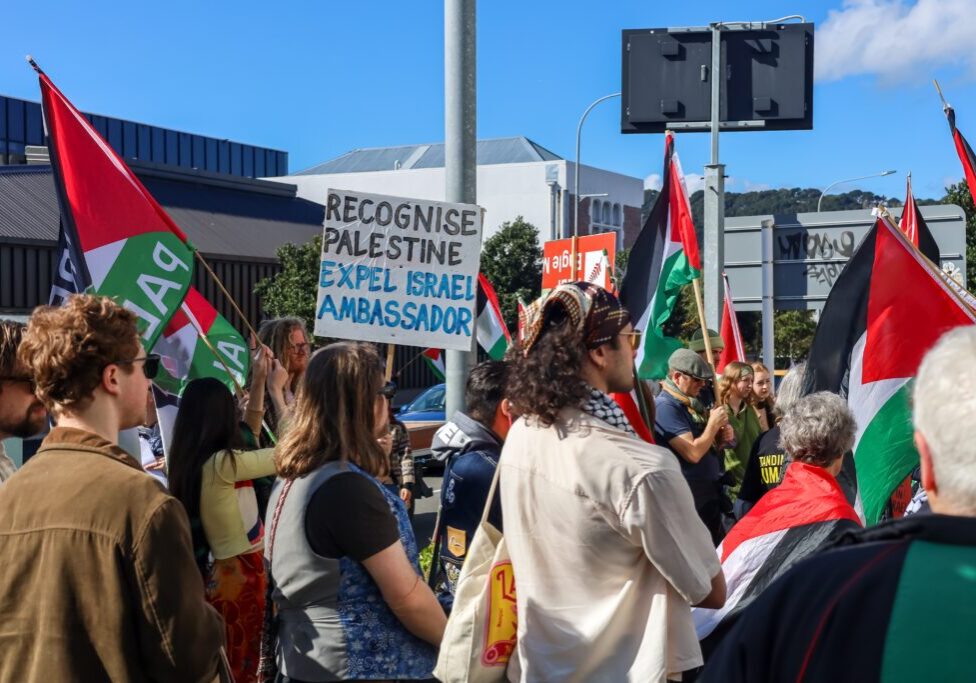Australia/Israel Review
Does Mahmoud Abbas finally have a successor?
Jul 1, 2022 | Yoni Ben Menachem

Israeli and US officials are watching Palestinian Authority Chairman Mahmoud Abbas’ affairs with concern. Senior Fatah officials report that something is happening to the 86-year-old Abbas. He has slowed his activity and cut back his meetings, participating only in the important ones while leaving the others to his confidant, senior PLO official Hussein al-Sheikh.
On June 11, Abbas hosted a US delegation headed by Barbara Leaf, Assistant Secretary of State for Near Eastern Affairs, who came to lay the groundwork for US President Joe Biden’s possible visit to the region. To Leaf, Abbas threatened to suspend ties and security coordination with Israel again. In addition, he demanded that the US Administration re-open the consulate in Jerusalem and the PLO office in Washington and delist the PLO as a terror organisation.
Al-Sheikh, currently the leading candidate to succeed Abbas until (or if) elections are held in the territories, is gradually assuming Abbas’ duties.
In early June, al-Sheikh, assuming the role held by the late Saeb Erekat, met with foreign consuls and US envoy Hady Amr, with whom he discussed the Palestinian Authority’s demands of the US Administration.
After Abbas’ June 11 meeting with the US delegation led by Barbara Leaf, al-Sheikh held a detailed discussion with the group. According to the WAFA news agency, the Palestinian official conveyed a gamut of demands:
I stressed the necessity of reopening the U.S (sic) consulate in East Jerusalem and removing the PLO from the lists of terrorism in accordance with the unfair congressional laws against the Palestinian people, and talked about the economic aspects and the need to resume assistance to the Palestinian Authority (PA), as well as unilateral measures that would undermine the two-state solution and peace opportunities, especially in light of the global financial crisis, especially the financial crisis in the PA due to the occupation’s withholding of our money from taxes owed to us.

Hussein el-Sheikh: Abbas’s right-hand man and well-positioned to succeed him, despite a poor public image (Image: Twitter)
Plugging the leaks
A leak to the BBC’s Arabic channel around the same time, alleging that Abbas had hastily been taken to hospital and had transferred some of his powers to al-Sheikh, was no coincidence.
Senior Fatah officials say this fake news was aimed at undermining the close ties between Abbas and his trusted ally al-Sheikh. The report was staunchly denied by the PA, and the BBC channel had to delete it from its website.
Hussein al-Sheikh, for his part, is not resting on his laurels. Since Abbas authorised him in early June to assume the role of Secretary-General of the PLO Executive Committee, he has been acting energetically on several fronts to bolster his status as Abbas’ possible successor.
Al-Sheikh is doing all he can to remain the most prominent candidate to succeed Abbas as PA and Fatah Chairman. Senior Fatah officials say it was he who deferred the Eighth Fatah Conference to an unknown date, seeking to prevent the election of senior Fatah officials to key positions that would enable them to challenge him in the succession battle.
Al-Sheikh’s main rival is Fatah Secretary-General Jibril Rajoub, who seeks the post of the organisation’s deputy chairman in place of Mahmoud al-Aloul.
The Lebanese newspaper Al-Akhbar reported on June 6 that sharp disagreements between senior members of the Fatah Central Committee had begun to imperil the movement’s future. Most of the Fatah top brass oppose al-Sheikh as their future leader.
Other senior Fatah figures expressed chagrin over Abbas’ handling of the movement’s affairs and the performance of Prime Minister Mohammad Shtayyeh’s Government.
There is intense anger over Abbas’ designation of al-Sheikh as Executive Committee Secretary-General without a process of internal elections, as the PLO by-laws require.
Senior Fatah officials say this damages the movement’s popularity and caused its defeat in the internal elections for several West Bank institutions, most notably the Student Council of Bir Zeit University.
Al-Sheikh’s reputation in the Palestinian street has been hit hard in recent years by reports in Palestinian social media and Israeli media charging him with corruption and sexual harassment.
The succession battle intensifies
Senior Fatah officials are competing to succeed Abbas. Most prominent among them is Deputy Chairman Mahmoud al-Aloul, the oldest aspirant and part of the organisation’s founding generation. Also in the running is Secretary-General Rajoub. Both men would like to see a quick convening of the Eighth Fatah Conference, which, they believe, would further empower them in the succession battle.
In light of these power struggles, however, al-Sheikh convinced Abbas to postpone the conference to an unspecified later date.
Al-Sheikh has been working for months to improve his ties with the Egyptian and Jordanian leaders and win their support in the succession battle. A very seasoned Palestinian politician, he is known by many as the “fox of Fatah”.
Recently al-Sheikh met with Egyptian and Jordanian officials and accompanied Abbas’ visit to Egypt and Jordan.
Sources close to al-Sheikh say that before his PLO Executive Committee appointment, Abbas consulted with Egyptian President Abdel Fattah el-Sisi and Jordan’s King Abdullah about the possibility of al-Sheikh replacing Saeb Erekat. The latter, who died of COVID-19, had been the Executive Committee’s Secretary-General and head of the negotiating team with Israel.
When the two Arab leaders did not express opposition, Abbas began transferring some of Erekat’s powers to al-Sheikh.
Another rival to al-Sheikh for the Fatah leadership is Marwan Barghouti, who is serving five life sentences in Israel for the murder of Israelis. Barghouti regards himself as Abbas’ natural successor, and in Palestinian public opinion surveys, he is out in front as the next PA chairman.
Fatah sources claim, however, that Israel promised al-Sheikh that after Abbas’ death, Barghouti would not be freed from prison, thereby clearing the path for al-Sheikh to take control of Fatah.
The Israeli defence establishment fears that Barghouti, who was a leader of the Second Intifada, would reignite armed struggle against Israel.
Al-Sheikh, in any case, faces a huge challenge and is racing against time to shore up his status before Abbas leaves the political stage. Al-Sheikh is getting help from his political ally General Majid Freij, who is leading an effort to oust Prime Minister Shtayyeh and thereby boost al-Sheikh’s influence.
Abbas supports al-Sheikh, who has become his protégé. In his role as head of civil affairs, al-Sheikh is in charge of the tax revenues that Israel transfers to the Palestinian Authority each month, entry permits to Israel, and VIP certificates for senior PA officials – affording him great power within the PLO and the PA and ways to buy political loyalty.
However, al-Sheikh does not enjoy great support in the divided Fatah movement. Once Abbas leaves the political arena, al-Sheikh will face a serious problem because the PA Chairman has been the source of his power.
In Gaza, al-Sheikh is seen as responsible for the sanctions on the Strip, and all the factions oppose his becoming Abbas’ successor as PA chief.
Abbas’ choice of al-Sheikh as Erekat’s temporary replacement came as a surprise to the Fatah movement. In the next stage, he intends to promote Freij to membership of the Fatah Central Committee.
The tripartite axis of Abbas, Hussein al-Sheikh, and Majid Freij is currently leading the Palestinian Authority, to the consternation of other Fatah officials such as Jibril Rajoub and Mahmoud al-Aloul, each of whom sees himself as Abbas’ successor.
In any case, a senior Fatah official believes that if Abbas is incapacitated or dies, the one who will temporarily replace him will be the former speaker of the Palestinian National Council, Rawhi Fattouh, and that it will be for a period of 60 days until the presidential elections.
Although Hussein al-Sheikh will be able to run in those elections, his chances of winning are now poor in light of his blemished reputation in the Palestinian street.






